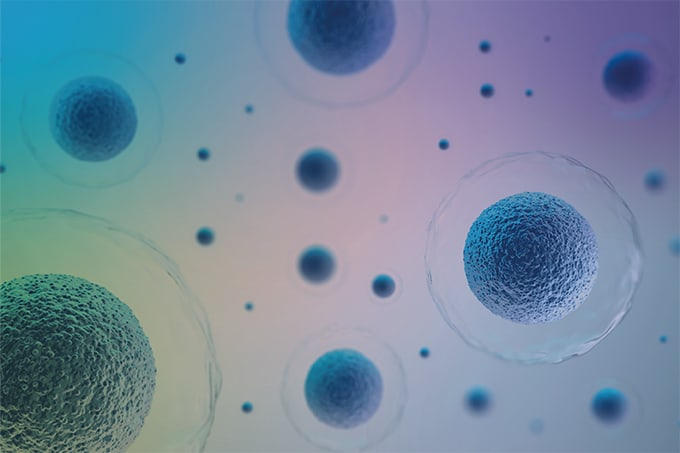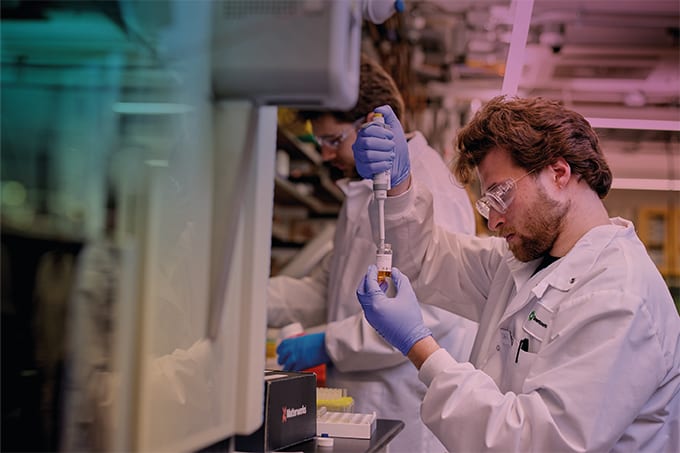We all strive to be more efficient. Why waste time and energy getting a job done? And though measuring efficiency for a simple system or process is relatively straightforward, when we delve deeper into the concept, we find an untameable multifaceted beast. Indeed, when trying to assess (and increase) the efficiency of a complex system with complex processes – an analytical laboratory, for example – we are faced with a somewhat nebulous task, demanding that we focus on one aspect or another, while perhaps neglecting others.
What is “Your Efficiency Challenge”?
The Analytical Scientist has teamed up with Agilent Technologies to run an exciting project over the coming months that begins with your views on efficiency in terms of liquid chromatography and associated workflows. The survey results will help define topics for three lively roundtable discussions and a series of articles that will cover the most important aspects of efficiency. By taking Your Efficiency Challenge, you could also be selected as one of our “challengers,” whose responses and questions will serve as case studies for our experts. And the very best will be given the opportunity to join the expert panel discussions. Finally, we’ll bring all the insight gained into a compendium – our “Guide to Efficiency.” By looking at the outcomes of the survey, sharing the insights of our experts, and by starting an ongoing discussion on efficiency, we believe that everyone stands to gain.Experts in efficiency
We spoke with two of our five-strong panel of efficiency experts ahead of Your Efficiency Challenge for some opening ‘food for thought.’ “The classical definition of efficiency is the ratio between the output and input. But in analytical chemistry, the output is very often complex in nature; it could be analytical information as measured by number of results and quality of those results,” says Wolfgang Kreiss, a Germany-based independent consultant who specializes in the field of laboratory management. “But efficiency could equally be considered the monetary value of the information obtained in an analytical study versus the input of cost and time. In some cases, efficiency simply means delivering the right results on time.” Kreiss notes the complexity of potential outputs in analytical laboratories as a confounding factor when attempting to optimize processes and workflows. Because the concept of efficiency spans everything from analytical aspects, such as number of plates or peaks per time, through instrumental aspects (overall analysis speed, ease of use), to the whole laboratory (overall cost per sample), Kreiss says that a holistic view is needed to find inefficiencies. “We’re living in a world that takes a much sharper look at compliance, which means that we must increasingly be able to prove that analytical results are valid,” says Kreiss. “In practice, you need instrumentation and software with sufficient speed and processing capacity for statistically valid results – and though the excessive repetition required may not feel efficient, analytical results may hold little or no value if you cannot provide evidence of their validity.” Where would Kreiss begin in an assessment of an analytical laboratory’s efficiency? “I would first look at the objective of the lab – after all, the objective defines the ‘output’ and hence the measure of efficiency. If the lab does routine analysis or process control, I would focus on the instrumentation. Is it standardized across the lab? A circus or museum of instruments is less likely to breed efficiency,” says Kreiss. “I would also check the appropriate use of systems – is an advanced system with only one trained operator being used for an analytical task befitting a simpler solution? Or, alternatively, are some operators struggling to meet requirements with instrumentation or software that should be updated?” Efficient interaction between data systems – from the chromatography data system to LIMS to the ERP system – would also be a high priority. “Efficiency is lost very quickly without adequate and direct integration of all necessary software systems,” says Kreiss. “It cannot be neglected.” Colinda van Tilburg, Group Leader Analytical Chemistry at Mercachem in the Netherlands, is responsible for method development in an open access analytical department that serves 140 organic chemists, so she fully understands the need for efficiency. “In the contract research world, efficiency is about rapid turnaround of the results that matter; it’s also about working ‘at the limit’ – modern LC systems allow you to get the same result much faster. My belief is that if you have extra speed available, you should use it,” says Van Tilburg. “Likewise, repetitive tasks that can be automated should be automated, wherever feasible.” Van Tilburg agrees with Kreiss that efficiency needs to be tackled holistically. And sometimes simple or small changes can have a big impact. “If I’m assessing a new laboratory with efficiency in mind, I take a ‘top down’ approach. I first look at the infrastructure.” Van Tilburg recalls walking into one large laboratory where all the equipment was stacked at the far end. “Nothing was near the door, so everyone had to walk further. That’s the first thing I would change in that lab! It’s good to see how people actually operate within the infrastructure. Next, I assess how operators are working with the instrumentation. Are the systems easy to set up and use? Is the software intuitive? Finally, I drill down into the analytical methods,” says Van Tilburg. “It’s also important to look at workflows in their entirety, which enables you to find weak points or bottlenecks. And whatever the laboratory, it’s about making the best use of what you have – and should always include the people.”At HPLC 2017 in Prague, we asked a number of analytical scientists a straightforward question: “What does ‘efficiency’ mean to you?” Responses almost always began with a lengthy pause and ended with a lengthy discussion. Here are some of the answers: “When I think of efficiency (from an analytical point of view), the first thing that springs to mind is speed – achieving the same task, faster. On the other hand, when it comes to managing a team of 250 people, it’s about getting the maximum value for less effort – without driving people to exhaustion!” – Emily Hilder, Director, Future Industries Institute, University of South Australia, Australia. “Analytically, I think of a stack of theoretical plates that can never really exist. When it comes to managing a lab, efficiency means getting the results out on time and working safely using the correct procedures (among other things).” – David McCalley, Professor in Bioanalytical Science, University of the West of England, UK. “I think speed is the most important aspect of efficiency from an analytical standpoint – while keeping all of the essential components of the mixture separated, of course. In the lab, daily efficiency has more to do with robust instrumentation and reliable consumables that help you avoid unnecessary repetition and errors.” – Gerard Rosse, Associate Director, Structure Guided Chemistry, at Dart Neuroscience, San Diego, USA. “Efficiency for me means high throughput. But, whatever the situation, it’s about utilizing resources in the most effective way.” – Andrea Gargano, Postdoctoral Fellow, University of Amsterdam/Vrije Universiteit Amsterdam, the Netherlands. “Personally, efficiency is something I feel like I often lack! In chromatography, it’s something that I constantly strive to achieve, and it relates to separation power per time.” – anonymous. “Analytically, seeing a lot of peaks... In the lab, getting my results on time.” – Koen Sandra, Scientific Director, Research Institute for Chromatography, Kortrijk, Belgium; co-founder and R&D Director anaRIC biologics, Ghent, Belgium. “For a chromatographer, efficiency certainly means the number of theoretical plates. In the lab, efficiency often has a lot to do with the effective flow of information.” – Michael Lämmerhofer, Professor, Pharmaceutical Analysis and Bioanalysis, University of Tuebingen, Germany. “I’m old fashioned so, for me, the plate count is the efficiency. But I know Leonid Blumberg will be upset with me, because it’s not really a good measure – performance is not proportional to efficiency. In the lab environment, it depends on the goal; in industry, it’s well defined. But in academia, the goal should be to raise students to a certain level, so you may have to accept some inefficiency (reduced number of published papers) as part of a more efficient learning process.” – Peter Schoenmakers, Professor and Scientific Director, Van ‘t Hoff Institute for Molecular Sciences, The University of Amsterdam, the Netherlands. And finally, at the end of the last day of a long week at HPLC 2017... “Efficiency means the fastest route back to my hotel... or the next bar...” – anonymous.
What did we learn at HPLC 2017?
- Efficiency is an important goal for everyone
- Efficiency is dependent on the desired outcome, but analytical scientists typically strive for increased throughput.
- By discussing efficiency, we can more deeply consider where real gains can be made.





